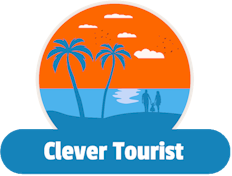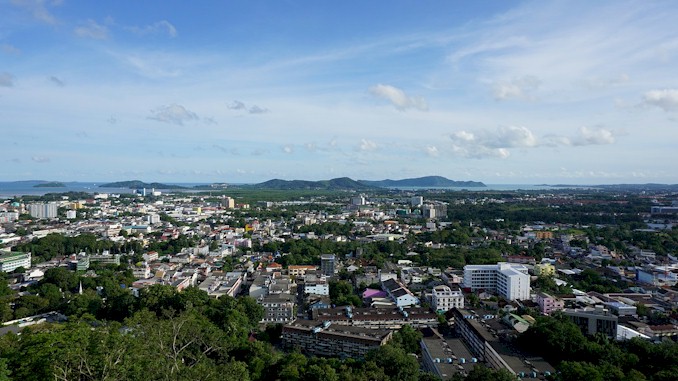Discover Canada’s Digital Nomad Dream: Check Your Eligibility Now!
I love to travel. But traveling can be expensive and complicated, especially if you want to visit different countries. That’s why I was so excited when I heard about Canada’s new digital nomad visa. It’s a program that lets you work and live in Canada for up to six months, without needing a job offer from a Canadian employer. But you need to have a foreign employer who pays you in your home currency to be eligible for this visa. I’ve done all the research and found out everything you need to know about this opportunity. I’ll share with you the benefits, the challenges, and the steps you need to take to make your Canadian dream come true.
To check your eligibility for Canada’s new digital nomad visa, you need to meet the following criteria:
- You must be at least 18 years old and have a valid passport.
- You must have a foreign employer who pays you in your home currency and does not operate in Canada.
- You must have proof of sufficient funds to support yourself and any dependents during your stay in Canada.
- You must have health insurance that covers you and any dependents for the duration of your stay in Canada.
- You must have a clean criminal record and pass a medical exam.
The processing time for a Canada Digital Nomad Visa application varies on the volume of applications and the completeness of your application. It is usually around four weeks, but some applications may take longer to process if additional information or documentation is required. You can check the status of your application online after you submit it.
Now that you know how to check your eligibility for Canada’s new digital nomad visa, you might be wondering what are the benefits of this program and how to apply for it. In the following sections, I’ll explain why Canada is a great destination for digital nomads, what are the challenges you might face, and how to prepare your application and documents. I’ll also share some tips and resources to help you make the most of your time in Canada. So, stay tuned and keep reading. You’ll be glad you did.
Discover Canada’s Digital Nomad Dream: Check Your Eligibility Now!
If you’re a digital nomad, you probably love the freedom and flexibility of working from anywhere in the world. But sometimes, finding a place that has everything you need can be challenging. You want a destination that offers a high quality of life, a stable internet connection, a friendly culture, and a low cost of living. And of course, you want a place that welcomes you legally and lets you stay for a long time.
Canada is the latest country to offer a digital nomad visa, joining dozens of other countries that are luring remote workers for temporary stays. The Canadian government announced this new program as part of its Tech Talent Strategy, which aims to attract more skilled workers and entrepreneurs to the country.
The new digital nomad visa will allow individuals working remotely for any company, freelancers, or content creators such as YouTubers to come to Canada and stay for up to six months, without needing a job offer from a Canadian employer. During this time, they can explore employment opportunities within the country and apply for a work permit if they secure a job.
This means that you can enjoy all the benefits of living in Canada, such as:
- A beautiful and diverse landscape, with mountains, lakes, forests, and cities
- A multicultural and tolerant society, with people from all over the world
- A high standard of living, with universal health care, education, and social services
- A low crime rate and a safe environment
- A vibrant and innovative tech scene, with many startups and incubators
- A favorable exchange rate and tax benefits for digital nomads
Sounds amazing, right? Well, it is. But there’s a catch. You need to have a foreign employer who pays you in your home currency to be eligible for this visa. And you need to meet some other requirements as well.
Don’t worry, though. I’ve done all the research and found out everything you need to know about this opportunity. In this blog post, I’ll explain how to check your eligibility for Canada’s new digital nomad visa and how to apply for it. I’ll also share some tips and resources to help you make the most of your time in Canada.
So, if you’re ready to discover Canada’s digital nomad dream, keep reading.
How to Check Your Eligibility for Canada’s New Digital Nomad Visa
Before you pack your bags and book your flight to Canada, you need to make sure that you are eligible for the new digital nomad visa. This visa is not for everyone, and there are some criteria that you need to meet to qualify.
The following are the main requirements for the Canada digital nomad visa:
- You must be at least 18 years old and have a valid passport
- You must have a foreign employer who pays you in your home currency and does not operate in Canada
- You must have proof of sufficient funds to support yourself and any dependents during your stay in Canada
- You must have health insurance that covers you and any dependents for the duration of your stay in Canada
- You must have a clean criminal record and pass a medical exam
To check your eligibility for the Canada digital nomad visa, you can use the online tool provided by the Canadian government. This tool will ask you some questions about your personal and professional situation and give you an answer based on your answers.
You can access the tool here: https://www.canada.ca/en/immigration-refugees-citizenship/services/come-canada-tool.html
If you are eligible, you can proceed to apply for the visa online. You will need to create an account on the official website of Immigration, Refugees and Citizenship Canada (IRCC) and fill out an application form. You will also need to upload some documents to support your application.
The following are some of the essential documents required for the Canadian digital nomad visa:
- Valid passport
- Digital photo
- Proof of foreign employment (such as a contract, a letter from your employer, or a pay stub)
- Proof of income (such as bank statements, tax returns, or invoices)
- Proof of funds (such as bank statements, credit card statements, or traveler’s checks)
- Proof of health insurance (such as a policy document, a certificate, or a card)
- Police certificates (from any country where you have lived for more than six months in the past 10 years)
- Medical exam report (from a designated panel physician)
You can find more information about the documents and how to obtain them here: https://www.canada.ca/en/immigration-refugees-citizenship/services/application/application-forms-guides/guide-5551-applying-change-conditions-extend-your-stay-canada.html
You will also need to pay a fee for your application. The fee is $100 CAD for the digital nomad visa and $85 CAD for the biometrics fee. You can pay online using a credit card or a debit card.
You can find more information about the fees and how to pay them here: https://www.canada.ca/en/immigration-refugees-citizenship/services/application/fees.html
Once you submit your application, you will receive an acknowledgment of receipt and a confirmation number. You will also receive instructions on how to provide your biometrics (fingerprints and photo) at a designated service point.
You can find more information about the biometrics and how to provide them here: https://www.canada.ca/en/immigration-refugees-citizenship/services/application/application-forms-guides/guide-5551-applying-change-conditions-extend-your-stay-canada.html#biometrics
After you provide your biometrics, you will have to wait for a response from the Canadian government. The processing time can vary, but it typically takes around four weeks. You can check the status of your application online using your confirmation number.
You can check the status of your application here: https://www.canada.ca/en/immigration-refugees-citizenship/services/application/check-status.html
If your application is approved, you will receive an approval letter and a digital nomad visa sticker in your passport. You can then travel to Canada and present these documents at the port of entry. You will also receive a visitor record that indicates the duration and conditions of your stay in Canada.
If your application is rejected, you will receive a refusal letter that explains the reasons for the decision. You can then either accept the decision or appeal it if you think there was an error or unfairness in the process.
You can find more information about appealing a decision here: https://www.canada.ca/en/immigration-refugees-citizenship/services/application/application-forms-guides/guide-5551-applying-change-conditions-extend-your-stay-canada.html#appeal
Why Canada is a Great Destination for Digital Nomads
You may be wondering: why should I choose Canada as my digital nomad destination? What makes it so special compared to other countries that offer similar visas?
Well, there are many reasons why Canada is a great place to live, work, and play as a digital nomad. Here are some of them:
- Canada is a beautiful and diverse country, with stunning natural scenery and vibrant urban centers. You can enjoy the mountains, lakes, forests, and wildlife in places like Banff, Jasper, or Whistler, or explore the culture, history, and nightlife in cities like Toronto, Montreal, or Vancouver. There is something for everyone in Canada, no matter what your interests are.
- Canada is a multicultural and tolerant society, with people from all over the world living together in harmony. You can experience different cultures, cuisines, languages, and traditions in Canada, and learn from the perspectives of others. You can also find communities of digital nomads and expats who share your lifestyle and values.
- Canada has a high standard of living, with universal health care, education, and social services. You can access quality health care without worrying about the costs, enroll in courses or programs to upgrade your skills or learn new ones, and benefit from various social programs that support your well-being. You can also enjoy a clean and safe environment, with low crime rates and high environmental standards.
- Canada has a vibrant and innovative tech scene, with many startups and incubators that foster creativity and entrepreneurship. You can find opportunities to network, collaborate, and grow your business in Canada, as well as access funding, mentorship, and support. You can also tap into the talent pool of skilled workers and professionals in various fields.
- Canada has a favorable exchange rate and tax benefits for digital nomads. You can save money by earning in a stronger currency and spending in a weaker one. You can also take advantage of tax treaties between Canada and other countries that prevent double taxation on your income. You may also qualify for tax deductions on your expenses related to your work.
As you can see, Canada has a lot to offer to digital nomads who want to experience a different way of life while working remotely. But don’t take my word for it. Here are some testimonials from digital nomads who have lived or are living in Canada:
- “Montreal is one of my favorite cities in the world. It has a wonderful mix of European charm and North American energy. The people are friendly, the food is delicious, and the culture is rich. I love working from cafes or co-working spaces here, as there is always something inspiring happening around me.” – Anna, web designer from France
- “Calgary is a great place to live as a digital nomad. It has a booming tech industry and a supportive startup community. It’s also close to the Rocky Mountains, which are perfect for hiking, skiing, or camping. I enjoy the balance between work and nature here.” – David, software developer from Australia
- “Vancouver is an amazing city for digital nomads. It has everything you need: fast internet, modern infrastructure, diverse population, and beautiful scenery. It’s also very easy to get around by public transit or bike. I love working from the beach or the park here, as it gives me a sense of freedom and relaxation.” – Maria, content writer from Mexico
These are just some of the examples of digital nomads who have enjoyed living in Canada. Of course, there are many other places in Canada that you can explore and discover as a digital nomad. You can find more information and resources on the best places for digital nomads to live, work, and play in Canada here: https://nomadgirl.co/best-places-digital-nomads-live-work-play-canada/
So, if you’re looking for a destination that offers a high quality of life, a stable internet connection, a friendly culture, and a low cost of living, Canada might be the perfect choice for you. But before you make your decision, you should also be aware of some of the challenges that you might face as a digital nomad in Canada.
What are the Challenges of Working and Living in Canada as a Digital Nomad?
While Canada has many advantages for digital nomads, it also has some challenges that you should be aware of before you decide to move there. Working and living in Canada as a digital nomad is not always easy, and you may encounter some difficulties and drawbacks along the way.
Here are some of the common challenges that digital nomads may face in Canada:
- Difficulty in maintaining a work-life balance: Working remotely can blur the boundaries between your personal and professional life, especially if you have to deal with different time zones, deadlines, and expectations. You may find it hard to set a regular schedule, manage your workload, and avoid distractions. You may also struggle to find time for yourself, your hobbies, your health, and your social life.
- Choosing suitable locations to travel: Canada is a huge country, with many places to explore and discover. However, not all of them may be suitable for digital nomads. Some places may have poor internet connectivity, high living costs, harsh weather conditions, or limited transportation options. You may also face visa restrictions, travel bans, or quarantine requirements due to the COVID-19 pandemic.
- Lack of social life and emotional support: Living in a foreign country can be lonely and isolating, especially if you don’t know anyone or don’t speak the language. You may miss your family, friends, and home country. You may also find it hard to make new friends or connect with the local community. You may feel out of place, misunderstood, or discriminated against.
- Keeping up with finances and taxes: Managing your money can be challenging as a digital nomad, as you have to deal with different currencies, exchange rates, fees, and expenses. You may also have to pay taxes in both your home country and Canada, depending on your residency status and income source. You may need to hire an accountant or use a tax software to help you file your taxes correctly and avoid double taxation.
- Maintaining a consistent routine: Having a flexible lifestyle can be liberating, but it can also be chaotic. As a digital nomad, you may have to adapt to different environments, cultures, customs, and laws. You may also have to cope with changes in your accommodation, transportation, food, health care, and safety. You may find it hard to establish a consistent routine that works for you and your needs.
- Having access to adequate health care: Health care in Canada is generally of high quality and accessible for residents. However, as a digital nomad on a visitor visa, you may not be eligible for public health insurance or subsidized health services. You may have to pay out-of-pocket for any medical expenses or emergencies that may arise during your stay in Canada. You may also face challenges in finding a doctor, booking an appointment, or getting a prescription.
- Dealing with burnout and taking care of your mental health: Working remotely can be stressful and demanding, especially if you have to juggle multiple projects, clients, or employers. You may also face challenges in communicating, collaborating, or resolving conflicts with your team members or managers. You may feel overwhelmed, exhausted, or frustrated by your work. You may also experience anxiety, depression, or other mental health issues due to the isolation, uncertainty, or pressure of being a digital nomad.
These are some of the challenges that you may encounter as a digital nomad in Canada. However, they are not insurmountable. There are ways to overcome them and enjoy your digital nomad experience in Canada.
How to Apply for Canada’s New Digital Nomad Visa
If you are eligible and interested in applying for Canada’s new digital nomad visa, you may be wondering how to go about it. What are the steps, documents, and fees involved in the application process?
The full details of the online application process for Canada’s digital nomad visa are yet to be announced and established. However, according to the information currently available, the following steps may potentially apply:
- Step 1: Browse the Canada immigration website and check your eligibility status. You can use the online tool provided by the Canadian government to see if you qualify for the digital nomad visa. You will need to answer some questions about your personal and professional situation and receive an answer based on your answers.
- Step 2: Create an account on the official website of Immigration, Refugees and Citizenship Canada (IRCC) and fill out an application form. You will need to provide some basic information about yourself, your foreign employer, your income, your travel plans, and your purpose of visit. You will also need to agree to the terms and conditions of the visa program.
- Step 3: Upload supporting documents to your application. You will need to provide some documents to prove your identity, employment, income, funds, health insurance, criminal record, and medical exam. You may also need to provide additional documents depending on your specific situation. You can find a list of essential documents required for the Canadian digital nomad visa here: https://www.canada.ca/en/immigration-refugees-citizenship/services/application/application-forms-guides/guide-5551-applying-change-conditions-extend-your-stay-canada.html
- Step 4: Pay the application fee and submit your application. You will need to pay a fee of $100 CAD for the digital nomad visa and $85 CAD for the biometrics fee. You can pay online using a credit card or a debit card. You will receive an acknowledgment of receipt and a confirmation number after you submit your application.
- Step 5: Provide your biometrics at a designated service point. You will receive instructions on how to provide your fingerprints and photo at a service point near you. You will need to book an appointment and bring your passport, confirmation number, and biometric instruction letter with you.
- Step 6: Wait for a response from the Canadian government. The processing time for a digital nomad visa application can vary, but it typically takes around four weeks. You can check the status of your application online using your confirmation number. You will receive an email notification when a decision is made on your application.
- Step 7: If your application is approved, receive your approval letter and visa sticker in your passport. You can then travel to Canada and present these documents at the port of entry. You will also receive a visitor record that indicates the duration and conditions of your stay in Canada.
- Step 8: If your application is rejected, receive a refusal letter that explains the reasons for the decision. You can then either accept the decision or appeal it if you think there was an error or unfairness in the process.
These are some of the possible steps involved in applying for Canada’s new digital nomad visa. However, these steps may change or vary depending on the official guidelines and procedures that will be released by the Canadian government in the near future.
You can find more information and updates about Canada’s new digital nomad visa here: https://www.canada.ca/en/immigration-refugees-citizenship/news/2023/06/canadas-tech-talent-strategy.html
What Documents Do You Need to Prepare for Your Application
Applying for Canada’s new digital nomad visa requires you to prepare and submit some documents to support your application. These documents are essential to prove your identity, employment, income, funds, health insurance, criminal record, and medical exam. You may also need to provide additional documents depending on your specific situation.
The following are some of the essential documents required for the Canadian digital nomad visa:
- Valid passport: you need a valid passport to enter Canada. Your passport should be valid for at least six months beyond the planned stay.
- Digital photo: you need a recent digital photo that meets the specifications of the Canadian government. You can find the photo requirements here: https://www.canada.ca/en/immigration-refugees-citizenship/services/application/application-forms-guides/guide-5551-applying-change-conditions-extend-your-stay-canada.html#photo
- Proof of foreign employment: you need to provide evidence that you have a foreign employer who pays you in your home currency and does not operate in Canada. This can be a contract, a letter from your employer, or a pay stub.
- Proof of income: you need to provide evidence that you have a stable and sufficient income to support yourself and any dependents during your stay in Canada. This can be bank statements, tax returns, or invoices.
- Proof of funds: you need to provide evidence that you have enough funds to cover your expenses while staying in Canada. This can be bank statements, credit card statements, or traveler’s checks.
- Proof of health insurance: you need to provide evidence that you have health insurance that covers you and any dependents for the duration of your stay in Canada. This can be a policy document, a certificate, or a card.
- Police certificates: you need to provide police certificates from any country where you have lived for more than six months in the past 10 years. These certificates should show that you have a clean criminal record and are not a security risk.
- Medical exam report: you need to undergo a medical exam by a designated panel physician and provide a report that shows that you are in good health and do not pose a public health threat.
You can find more information about these documents and how to obtain them here: https://www.canada.ca/en/immigration-refugees-citizenship/services/application/application-forms-guides/guide-5551-applying-change-conditions-extend-your-stay-canada.html
You should prepare these documents in advance and make sure they are complete, accurate, and up-to-date. You should also scan them and save them as PDF files on your computer or device. You will need to upload them to your online application when prompted.
You should also keep the original documents with you when you travel to Canada, as you may be asked to present them at the port of entry.
These are some of the documents that you need to prepare for your application for Canada’s new digital nomad visa. However, these documents may not be exhaustive or final, as the official guidelines and procedures for the visa program are still being developed by the Canadian government.
You can find more information and updates about Canada’s new digital nomad visa here: https://www.canada.ca/en/immigration-refugees-citizenship/news/2023/06/canadas-tech-talent-strategy.html
Tips and Resources to Help You Make the Most of Your Time in Canada
Once you have applied for and obtained your Canada digital nomad visa, you are ready to start your adventure in this amazing country. However, there are some things that you should know and do to make your experience as smooth and enjoyable as possible.
Here are some tips and resources to help you make the most of your time in Canada as a digital nomad:
- Spend at least one month in each location: Canada is a huge country, with many places to explore and discover. However, moving too often can be stressful, expensive, and disruptive for your work and life. It is better to spend at least one month in each location, so that you can get to know the area, find a comfortable accommodation, establish a routine, and enjoy the local attractions.
- Join a co-working space: Working from home or from cafes can be convenient, but it can also be lonely and distracting. Joining a co-working space can help you find a productive and professional environment, as well as connect with other digital nomads and entrepreneurs. You can also access various amenities, such as fast internet, printers, meeting rooms, and coffee machines. You can find co-working spaces in Canada here: https://www.coworker.com/canada
- Use apps to meet new people: Making friends and socializing can be challenging as a digital nomad, especially if you don’t speak the language or share the culture. However, there are many apps that can help you meet new people who share your interests, hobbies, or lifestyle. You can also join online communities and events for digital nomads in Canada. Some of the apps and platforms that you can use are: Meetup, Nomad List, InterNations, Couchsurfing, Bumble BFF, Facebook Groups.
- Sign up for ‘Nomad Insurance’: Health care in Canada is generally of high quality and accessible for residents. However, as a digital nomad on a visitor visa, you may not be eligible for public health insurance or subsidized health services. You may have to pay out-of-pocket for any medical expenses or emergencies that may arise during your stay in Canada. Therefore, it is advisable to sign up for ‘nomad insurance’, which is a type of travel insurance that covers you for medical, dental, evacuation, repatriation, and other costs related to your health and safety. You can find nomad insurance providers here: https://nomadlist.com/insurance
- Set boundaries with your boss or clients: Working remotely can blur the boundaries between your personal and professional life, especially if you have to deal with different time zones, deadlines, and expectations. You may find it hard to set a regular schedule, manage your workload, and avoid distractions. Therefore, it is important to set clear boundaries with your boss or clients, such as your availability hours, communication methods, deliverables, and feedback. You should also communicate your goals, progress, challenges, and achievements regularly.
- Get multiple debit and credit cards: Managing your money can be challenging as a digital nomad, as you have to deal with different currencies, exchange rates, fees, and expenses. You may also encounter issues with your debit or credit cards, such as loss, theft, damage, or fraud. Therefore, it is advisable to get multiple debit and credit cards from different banks or providers that offer low fees, high security, and good customer service. You should also use online banking and budgeting tools to track your income and expenses.
- Commit to mental and physical daily routines: Working remotely can be stressful and demanding, especially if you have to juggle multiple projects, clients, or employers. You may also face challenges in communicating, collaborating, or resolving conflicts with your team members or managers. You may feel overwhelmed, exhausted, or frustrated by your work. You may also experience anxiety, depression, or other mental health issues due to the isolation, uncertainty, or pressure of being a digital nomad. Therefore, it is essential to commit to mental and physical daily routines that can help you cope with these challenges and take care of your well-being. Some of the routines that you can adopt are: meditation, yoga, exercise, healthy eating, sleeping, reading, journaling, hobbies, and gratitude.
These are some of the tips and resources that can help you make the most of your time in Canada as a digital nomad. However, these tips are not exhaustive or final, as there may be other things that you need to know or do depending on your specific situation.
You can find more information and advice about living and working in Canada as a digital nomad here: https://nomadgirl.co/best-places-digital-nomads-live-work-play-canada/
Conclusion
While it is a little bit exciting to hear that Canada will issue the digital nomad visa, it ends up with a little disappointment. According to what the officer of RICC said to the media, it is a 6-month-long visa, which is actually the same length as a tourist visa. Why do I need a digital visa with more documents to provide? Maybe this will be changed when the digital nomad visa program is officially released.
Anyway, I have collected all the information I can find about the Canada digital nomad visa and shared it with you in this post. I hope you find it helpful.







